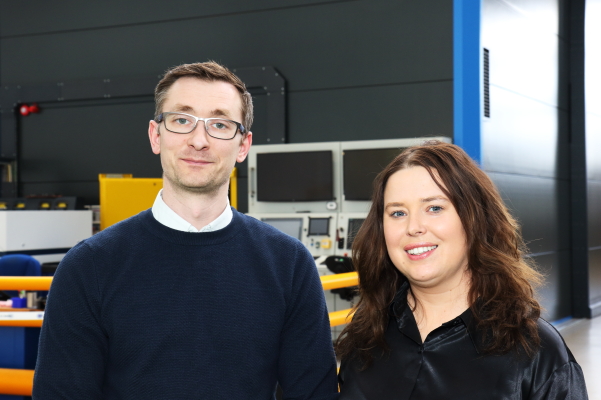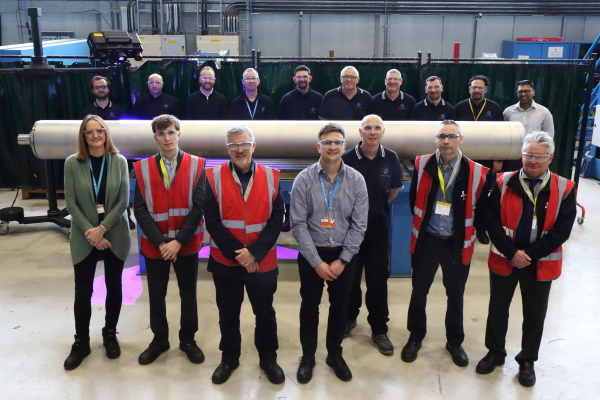The Nuclear AMRC is part of an industrial partnership led by X-energy to develop its plans for deploying advanced modular reactors in the UK, backed by £3.34 million government investment.
X-energy and Cavendish Nuclear have been awarded the grant from the Future Nuclear Enabling Fund (FNEF), which will be matched by X-energy for a total programme of £6.68 million. The companies will use the funds to develop UK-specific deployment plans including an assessment of domestic manufacturing and supply chain opportunities, constructability, modularisation studies, and fuel management.
“We are delighted to receive this FNEF award from the government,” said Carol Tansley, vice-president of projects at X-energy. “It reflects the readiness of our advanced technology to contribute to the UK’s energy needs in the next wave of new nuclear. Building on X-energy’s initial deployment with Dow on the US Gulf Coast, we can create both jobs and long-term energy security in the UK with clean, reliable advanced nuclear power.”
X-energy’s Xe-100 is a compact high-temperature gas-cooled reactor (HTGR), designed for industrial decarbonisation as well as electricity generation. The company is working with chemicals group Dow, with funding from the US government, to install four Xe-100s at one of Dow’s sites to provide low-carbon power and steam by 2030.

In the UK, X-energy and Cavendish plan to build a fleet of up to 40 Xe-100s, including an initial 12-reactor plant at Hartlepool by the early 2030s.
“As X-energy’s UK deployment partner, we’re pleased to welcome this award as a key step forward,” said Mick Gornall, managing director of Cavendish Nuclear. “A fleet of Xe-100s can complement renewables by providing constant or flexible power, and produce steam to decarbonise industry and manufacture hydrogen and synthetic transport fuels. Deployment in the UK will create thousands of high-quality, long-term jobs across the country.”
X-energy and Cavendish will work with UK partners including the Nuclear AMRC, Sheffield Forgemasters and Kier Group on the FNEF project. The companies intend that 80 per cent of value of Xe-100 projects will flow to UK firms.
“This is an exciting project for the UK nuclear industry, looking in detail for the first time at the potential for the UK to support the manufacture, construction and operation of a commercial-scale HTGR,” said Andrew Storer, CEO of the Nuclear AMRC. “We are delighted to be one of the key project partners.”
The Nuclear AMRC’s contribution will draw on its in-depth knowledge of UK supply chain capabilities and advanced manufacturing technologies, with additional specialist support from other parts of the University of Sheffield.
“The team are very much looking forward to supporting Cavendish Nuclear and X-energy on the development of a UK-focused manufacturing and sourcing strategy,” said Jamie Gordon, head of manufacturing engineering and joining technologies at the Nuclear AMRC.
Cavendish Nuclear, part of Babcock International Group, has been a tier one member of the Nuclear AMRC since 2018, collaborating on a variety of manufacturing technology projects.
X-energy and Cavendish also plan to engage with the UK nuclear regulators to evaluate approaches to licensing the Xe-100 for UK deployment. The design is already progressing through initial regulatory assessments in Canada and the US.
The Future Nuclear Enabling Fund is intended to reduce project risks for potential nuclear projects that could be in a position to take a final investment decision by the end of the 2020s. The award to X-energy and Cavendish is the first for an advanced modular reactor based on Generation IV technology.
“We are backing innovation in nuclear – from building large-scale plants better to encouraging new advanced technologies – to achieve our ambition for a quarter of our electricity to come from nuclear power by 2050,” said Andrew Bowie, minister for nuclear and renewables. “This funding supports the next step in the development of advanced modular reactors, and shows our commitment to keeping the UK at the forefront of nuclear technology.”






